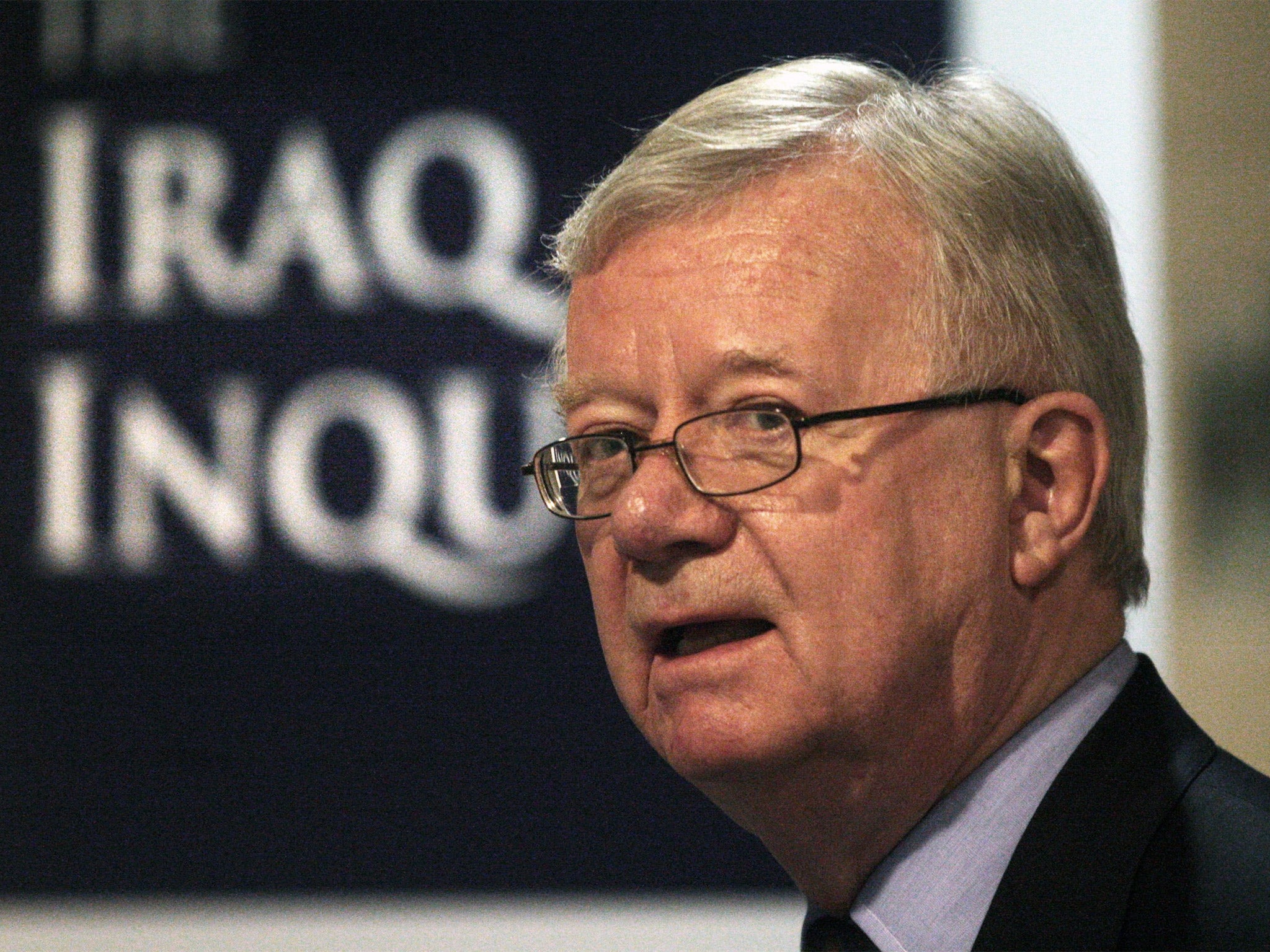Chilcot inquiry into Iraq War 'may not be published until next summer'
Accusations that Sir John's initial report was 'riddled with errors'

Your support helps us to tell the story
From reproductive rights to climate change to Big Tech, The Independent is on the ground when the story is developing. Whether it's investigating the financials of Elon Musk's pro-Trump PAC or producing our latest documentary, 'The A Word', which shines a light on the American women fighting for reproductive rights, we know how important it is to parse out the facts from the messaging.
At such a critical moment in US history, we need reporters on the ground. Your donation allows us to keep sending journalists to speak to both sides of the story.
The Independent is trusted by Americans across the entire political spectrum. And unlike many other quality news outlets, we choose not to lock Americans out of our reporting and analysis with paywalls. We believe quality journalism should be available to everyone, paid for by those who can afford it.
Your support makes all the difference.The Chilcot inquiry into the Iraq War may not be published until next summer, it has been claimed, amid accusations that his initial report was “riddled with errors”.
Senior military commanders are said to have reacted furiously to drafts of the report blaming them for decisions which they say were the responsibility of politicians and civil servants. They claim to have been sent documents in support of the inquiry’s conclusions which they have “never seen before” and which were not raised when they gave evidence.
The allegations are made by the author Tom Bower, who has interviewed 180 senior figures from the cabinet, civil service and armed forces for a book on the Blair government to be published next year.
In an article for The Sunday Times, Mr Bower wrote: “In the draft, the inquiry criticised the military for decisions that were quite clearly the responsibility of politicians. The generals and admirals protested that they properly had obeyed their legal orders. They complained further that the draft quoted hundreds of government documents that had not been shown to witnesses for their comments.
“The panel members have correctly chosen to re-examine the evidence. In other words, they are now undertaking a new inquiry.”
Sir John last week apologised to the families of soldiers who died in Iraq for the length of the inquiry – which has now lasted six years – but refused to set a date for publication.
All civil servants, politicians, and military figures criticised are having their legal advice paid for and provided by the Government. It is understood that these lawyers are citing Article 6 of the European Convention on Human Rights — which protects a person’s right to a fair trial.
Sir John has been warned that condemning their clients too strongly would lay them open to civil claims for damages and potentially criminal proceedings.
“You have lawyers using human rights laws to argue in favour of their clients, who are on the receiving end of criticism for alleged human rights abuses. It’s absurd,” one Whitehall source told The Sunday Times.
Join our commenting forum
Join thought-provoking conversations, follow other Independent readers and see their replies
Comments